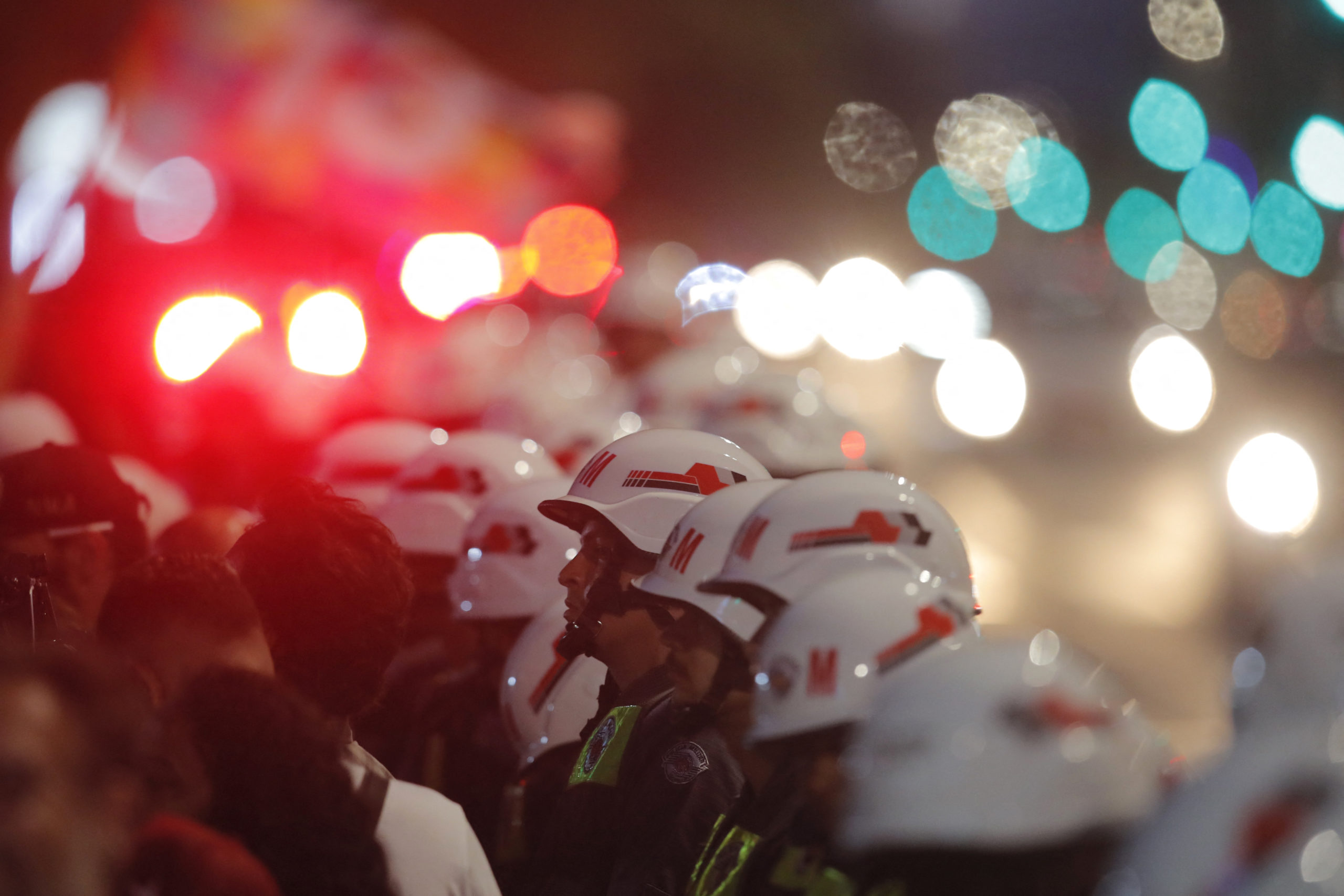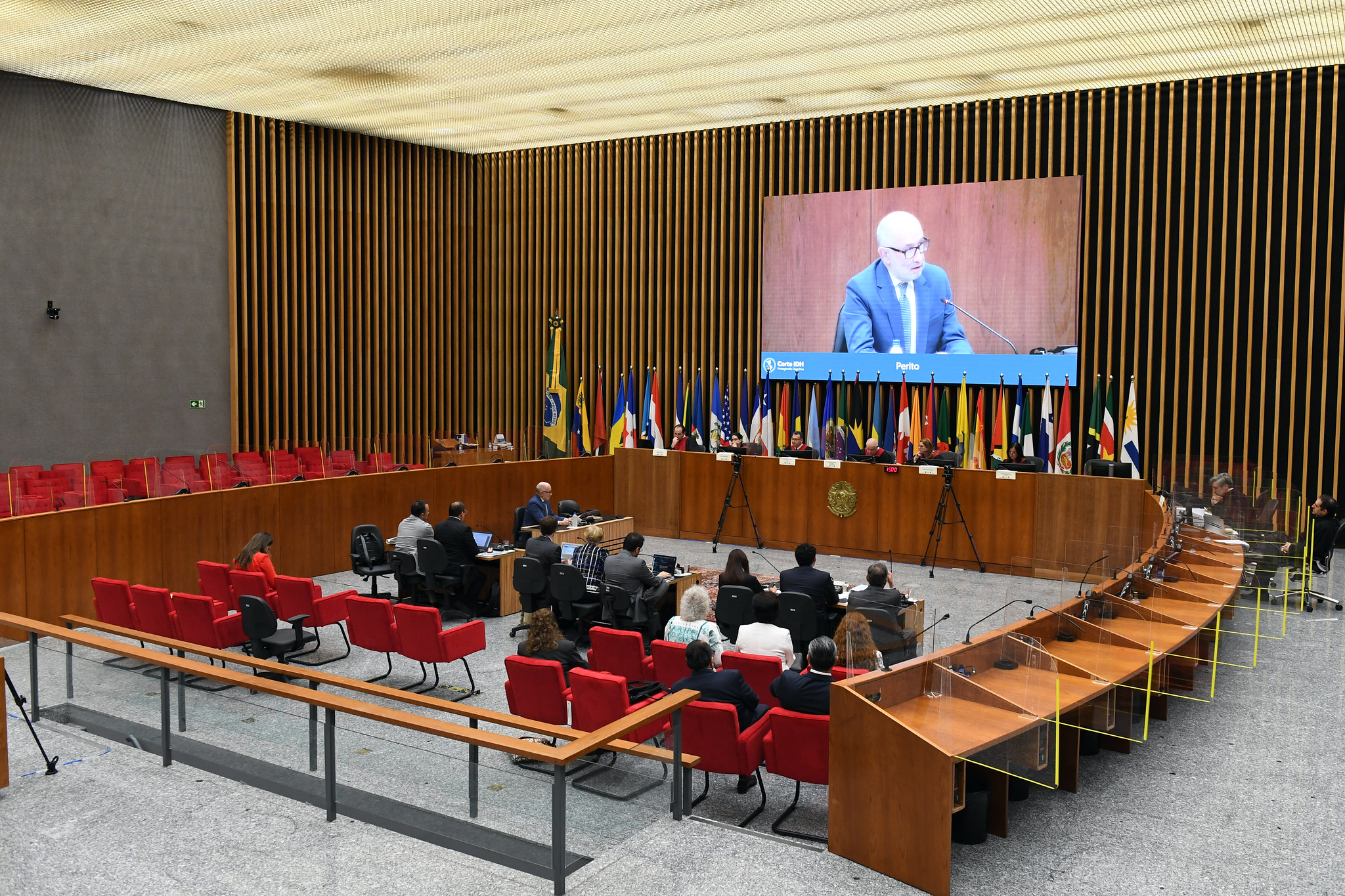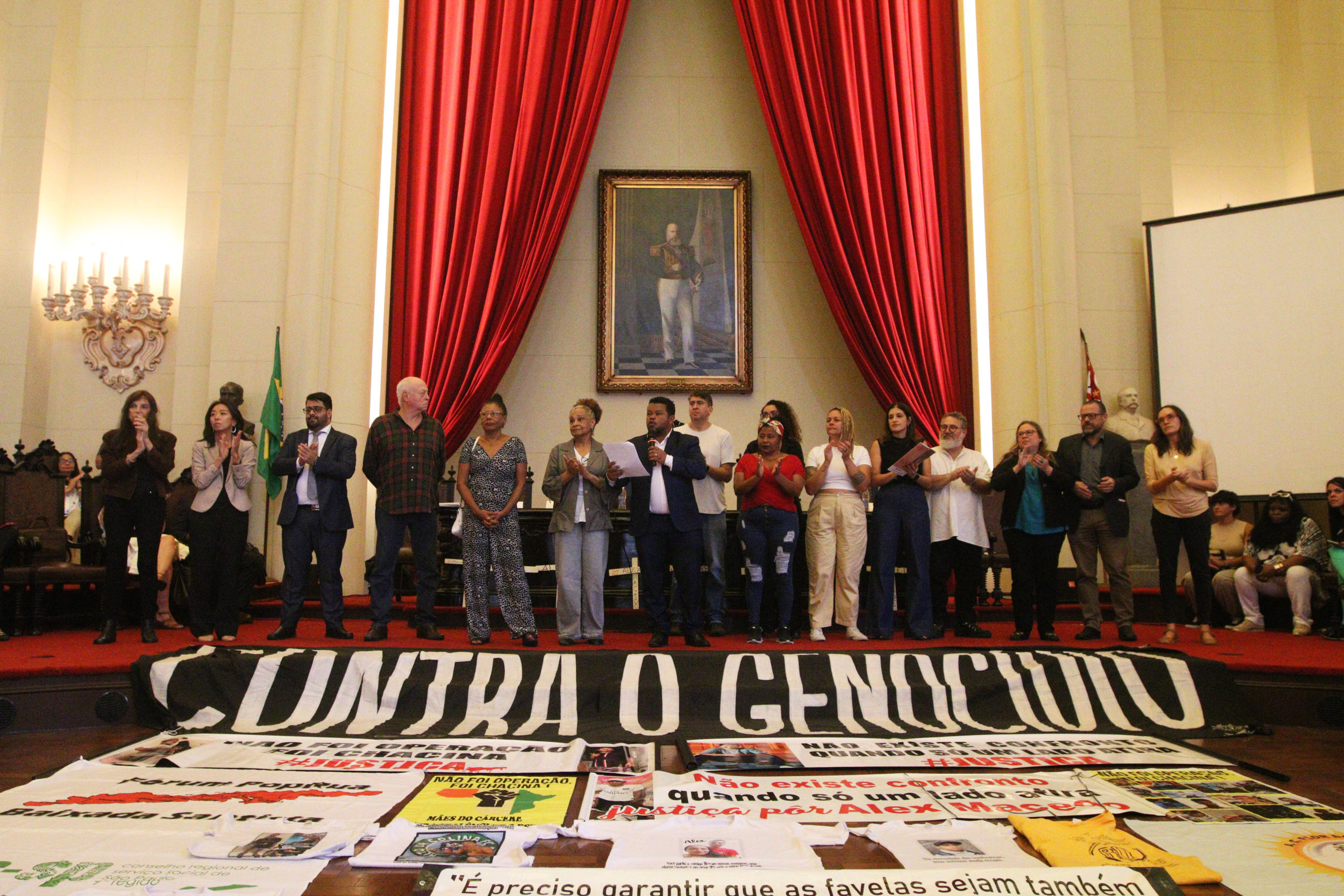Police violence against journalists
Press professionals describe aggression and suppression of their work at protests; inquiry to investigate police excesses in São Paulo
In a public hearing at the São Paulo Public Prosecutor’s Office this Wednesday, September 28, several journalists, photographers and communicators described physical and moral aggression, injuries from less-lethal weapons and damage to their equipment caused by military police officers while covering demonstrations.
The statements were collected by the prosecutors Eduardo Ferreira Valério and Beatriz Helena Budin Fonseca for a civil inquiry to investigate the suppression of journalism through acts of violence committed by police officers at protests over the past five years.
According to the complaints presented, the already violent actions of the police at demonstrations reached a new level of brutality during the “June journeys” in 2013, when most press professionals had to wear protective equipment to do their job with a minimum of security.
In recent years, there have been dozens of cases of journalists who have been detained illegally, had their equipment damaged and even suffered serious injuries. One of the most prominent examples was the case of the photographer Sergio Silva, who was blinded in his left eye after being struck by a rubber bullet. In a recent ruling, the São Paulo State Court denied compensation to Silva, claiming that the photographer was to blame because he had put himself in harm’s way by covering the protest.
According to data presented at the hearing by Abraji (Brazilian Association of Investigative Journalism), there have been 299 cases of journalists injured at demonstrations since May 2013, when records began. Of these, 217 were caused by public security agents.
In its statement, Conectas reiterated that the São Paulo Public Prosecutor’s Office, the body responsible for police oversight and combating excesses, is not doing its job.
“Besides the abuses committed by the police, it is also important to note the collusion of public institutions in these violations. Who can we turn to when the police violate our rights? On paper, there are three paths: internal oversight, conducted by the police themselves; external oversight, conducted by the Public Prosecutor’s Office; and judicial oversight, performed by the State Court when called upon. In practice, however, none of them have proven to be effective,” said the lawyer João Paulo Godoy, adviser to the Justice program at the organization.
In February this year, Conectas and partner organizations submitted a representation to the State Public Prosecutor’s Office questioning its inaction when it comes to the external oversight of police activity, a duty assigned it by the Constitution.
In this document, the organizations asked the Office to specify which of its units is responsible for conducting the external oversight of the police – in theory, the unit is called GECEP (Police Activity External Oversight Group). It also asked the Office to appoint members to personally look into cases of excesses by security agents at protests and, when these are identified, to present clearly and transparently to society the steps that will be taken.
Furthermore, the organizations requested that GECEP disclose the actions taken to oversee police activity at demonstrations and that it explain why the oversight of the military police has been delegated to the Military Prosecution Service. They also called on the State Public Prosecutor’s Office to require the military police to publicly release its so-called “POP” (Standard Operating Procedures), which is currently a secret document.
>>> Click here to sign the petition to end the abusive use of force by the military police.
>>> Click here to read 10 questions and answers on the use of force by the military police at protests.


